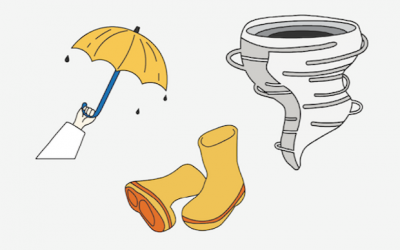The Most Popular Chinese Words Used by Young People in China
When it comes to Chinese learning, Chinese learners need to improve their overall language skills so that they can effectively communicate with Chinese people. Nevertheless, in consideration of the fact that youth culture is an inalienable part of contemporary Chinese society, it’s also necessary to learn more about young people’s lives in China. With the development of Chinese society, more and more “outlandish” words can now be seen on the internet. Using groovy slang words is now considered a trend among young people in China. Today you’ll have the opportunity to learn five Chinese words that young people in China often use.
Popular Chinese Words and Phrases
1. Irrational Competition

内卷
nèijuǎn
irrational competition
It’s necessary to learn this Chinese word as it refers to a kind of social phenomenon that can be observed across China at the moment. The meaning of this Chinese word is similar to “irrational competition”. Nowadays young people face huge pressure at work as the competition inside their companies is fierce. They have to keep improving their professional skills in order to be appreciated by their superiors or get promoted. In addition, students are now also involved in “内卷” (nèijuǎn). They have to study extremely hard in order to get into a good university. Meanwhile, Chinese parents think there is nothing wrong with “irrational competition” because all parents want their kids to be versatile. Therefore, most of them choose to face the tough situation instead of helping their children alleviate their stress.
2. To Let Nature Take Its Course

躺平
tǎng píng
to let nature take its course
(Lit. to lie down)
It’ll be interesting to learn this Chinese word as it is also derived from the “tough reality”. People are faced with different problems at the moment due to various factors such as the COVID-19 pandemic. The literal meaning of this word is “to lie down”. Those who choose “躺平” (tǎng píng) to be their attitude towards life believe that there is nothing they can do to change the current situation. Consequently, they prefer to “let nature take its course”. “躺平” (tǎng píng) is a kind of approach some people adopt to adjust themselves and alleviate their stress.
3. To Be Moved

破防
pò fáng
to be moved
“破” (pò) means “to damage”, and “防” (fáng) means “defense”. Hence, the literal meaning of this Chinese word is “to damage one’s defense”. People now often use it to describe a person who is deeply moved by something.
EXAMPLE
她的话让我破防了。
Tā de huà ràng wǒ pò fáng le.
I was deeply moved by her words.
(In this sentence, “话” (huà) means “words”, and “让” (ràng) means “to let / allow”.
Popular Chinese Words
4. Awesome

绝绝子
juéjuézǐ
awesome / splendid / extraodinary
There are quite a few Chinese words that you can learn in order to say something is “awesome”. “绝绝子” (jué jué zǐ) is a very popular Chinese slang word. Young Chinese people often use this word. “绝” (jué) means “extraordinary, splendid”, and people can use “绝绝子” (jué jué zǐ) to describe someone or something that is awesome. Let’s take a look at an example to help you learn how to use this Chinese word:
EXAMPLE
这咖啡的味道真是绝绝子。
Zhè kāfēi de wèidào zhēnshì juéjuézǐ.
The coffee tastes really good.
(In this sentence, “味道” (wèi dào) means “smell or taste”.)
5. Barbeque

芭比Q
bābǐQ
barbeque
Many young people have recently started to use this groovy Chinese word to describe a situation where something extremely unpleasant happened and “they’re done”. “芭比Q” (bābǐ Q) originated from the English word “barbeque”. It has started to prevail among young people in China since an online gamer used it to indicate that his opponent defeated him. You could often hear this word in Shanghai at the moment as many compounds have been in lockdown due to the latest surge of COVID-19 cases. Therefore, it’s worth learning this Chinese word.
EXAMPLE
芭比Q 了,我的小区被封了。
BābǐQ le, wǒ de xiǎoqū bèi fēng le.
Damn, my compound is in lockdown.
(In this sentence, “小区” (xiǎo qū) means “compound or apartment complexes”, and “封” (fēng) means “to seal”.
We hope you’ve learned a little bit more about China. To find out more interesting facts about china and Chinese culture, check out one of our blog posts How to Describe 5 Types of Weather in Chinese








0 Comments